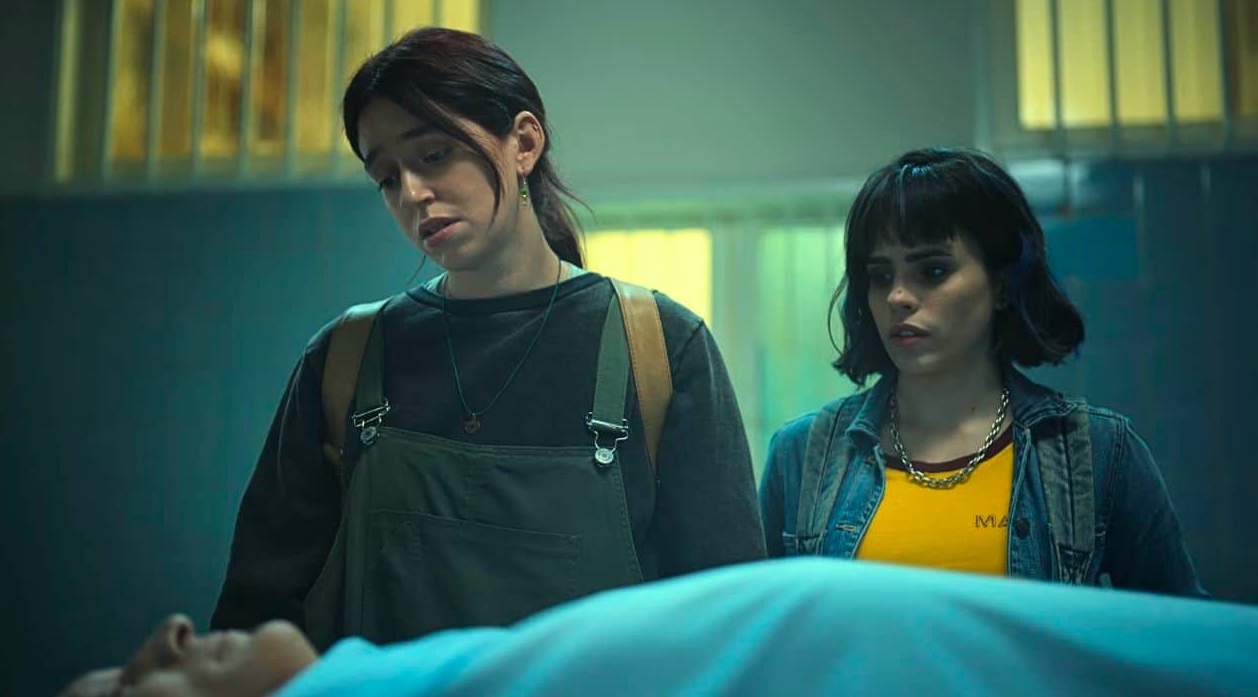Directed by Fabiana Tiscornia, Netflix’s ‘(Un)lucky Sisters’ (originally titled ‘Las hermanas fantásticas’) is a comedy-drama film that follows the story of two sisters who are brought together by a tragedy. Jesi and Angela didn’t meet each other until they both ended up at the morgue to identify the dead body of their estranged father. They knew of each other’s existence, but they never really talked to each other until now. They also hadn’t talked to their father in years, which is why the funeral is an awkward affair. What makes things really interesting is the stash of money the sisters discover in their father’s apartment and wonder what it means for them. The story takes very realistic twists and turns, giving the audience a believable perspective of two people who have suddenly chanced upon a lot of money.
(Un)lucky Sisters is an Entirely Fictional Tale

‘(Un)lucky Sisters’ is based on a screenplay written by Mariano Vera, who concocted the entirely made-up situation of the fictional sisters played by Sofía Morandi and Leticia Siciliani. The idea of the story stemmed from a very realistic situation: what would happen to two financially struggling people if they suddenly had millions of euros at their disposal? The premise becomes immediately attractive because almost everyone in the audience has, at least once, thought about such a situation of landing a ton of money, either through a distant relative or winning a lottery. In Jesi and Angela, we meet the women who are highly relatable due to the problems in their lives.
To add tension between the protagonists, the writer came up with the scenario of them being step-sisters who have the same father. This allows the characters to have a strong connection to each other but also keeps them from being strangers to each other despite this blood relation. The unfamiliarity between them opened the space for drama and conflict between them, especially with regard to money and their individual relationships with their father, which was almost non-existent for both of them.
While the film takes a comedic approach to tell the story, the filmmakers wanted to focus on the complexity of human nature and to present a version of what people can become under the influence of money, which has suddenly appeared in their lives out of nowhere. We see the differences in the personalities of Jesi and Angela exacerbated after they discover their father’s stash, and their approach toward deciding what to do with the money gives them the space for character development.

The story is also meant to explore the meaning of family and how unexpected bonds can become the most important thing in a person’s life. At the beginning of the film, Angela struggles to accept Jesi as her sister because the latter reminds her of her father’s infidelity and the breaking down of her parents’ marriage. At the same time, she also has a deluded view of her father, who she believes loved her, even though he had not talked to her for the past fifteen years. This presents the complex nature of her relationship with her father and Jesi and the delusion that drives her emotions throughout the film.
In contrast to her is Jesi, who has no delusions whatsoever about her father, whom she doesn’t care about at all. She only comes to his funeral to find out if he left anything for her, but she doesn’t have a lot of expectations because he didn’t really do anything for her when he was alive, either. With both of their perspectives, the film presents a complex mix of emotions, giving the audience something that they can enjoy watching while also finding everything grounded and relatable.
Read More: Netflix’s (Un)lucky Sisters: Exploring All Filming Locations


You must be logged in to post a comment.